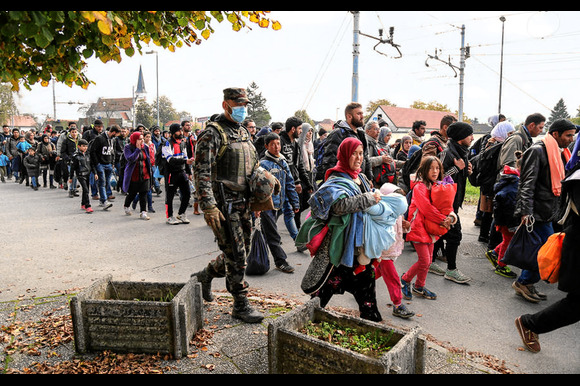A devastating traffic accident in western Afghanistan has left at least 79 people dead, including 17 children, according to a statement from a Taliban interior ministry spokesperson, as reported by the BBC. The victims were mostly Afghan migrants who had recently been deported from Iran.
The tragic incident occurred on Tuesday night in Herat province, when a bus traveling to Kabul collided with a truck and a motorcycle, causing a massive fire that engulfed the vehicles. All passengers on the bus perished in the blaze, along with two individuals from the other vehicles involved in the collision.
Ahmadullah Mottaqi, the Taliban’s director of information and culture in Herat, confirmed the details of the crash to BBC Pashto, stating that none of the bus passengers survived. According to Mohammad Yousuf Saeedi, a spokesman for the provincial governor, the bus had departed from Islam Qala, a town near the Afghanistan–Iran border, and was carrying Afghan migrants deported from Iran.
Herat police attributed the crash to the bus driver’s “excessive speed and negligence,” according to AFP. Deadly road accidents are unfortunately common in Afghanistan, where infrastructure has been weakened by decades of conflict and enforcement of traffic regulations remains limited.
The tragedy unfolds amid a broader humanitarian crisis affecting Afghan migrants. In recent months, Iran has intensified its efforts to deport undocumented Afghan nationals who have fled years of conflict in their home country. The victims of Tuesday’s accident were part of this growing wave of forced returns.
Since the 1970s, millions of Afghans have sought refuge in neighboring countries like Iran and Pakistan—initially during the Soviet invasion and more recently following the Taliban’s return to power in 2021. However, the reception in host countries has grown increasingly hostile, particularly in Iran, where Afghan refugees face systemic discrimination and mounting anti-Afghan sentiment.
Iran had set a July deadline for undocumented Afghans to leave the country voluntarily. But following a brief military conflict with Israel in June, Iranian authorities have ramped up deportations, citing national security concerns. Critics argue, however, that Tehran may be scapegoating Afghan migrants to deflect attention from its own failures in preventing Israeli attacks.
According to the UN Refugee Agency, more than 1.5 million Afghans have left Iran since January—many of whom had lived there for generations. The sudden return of such large numbers is placing enormous strain on Afghanistan, a country grappling with economic collapse and international isolation under Taliban rule.
The situation is further complicated by similar forced returns from Pakistan, creating a compounding crisis. Arshad Malik, country director for Save the Children Afghanistan, warned that the nation is ill-equipped to handle the surge in returnees.
“The return of so many people is creating an additional strain on already overstretched resources, and this new wave of refugees comes at a time when Afghanistan is starting to feel the brutal impacts of aid cuts,” Malik said.
With infrastructure crumbling and social services under immense pressure, experts caution that Afghanistan may face an even deeper humanitarian emergency if support is not urgently scaled up.






